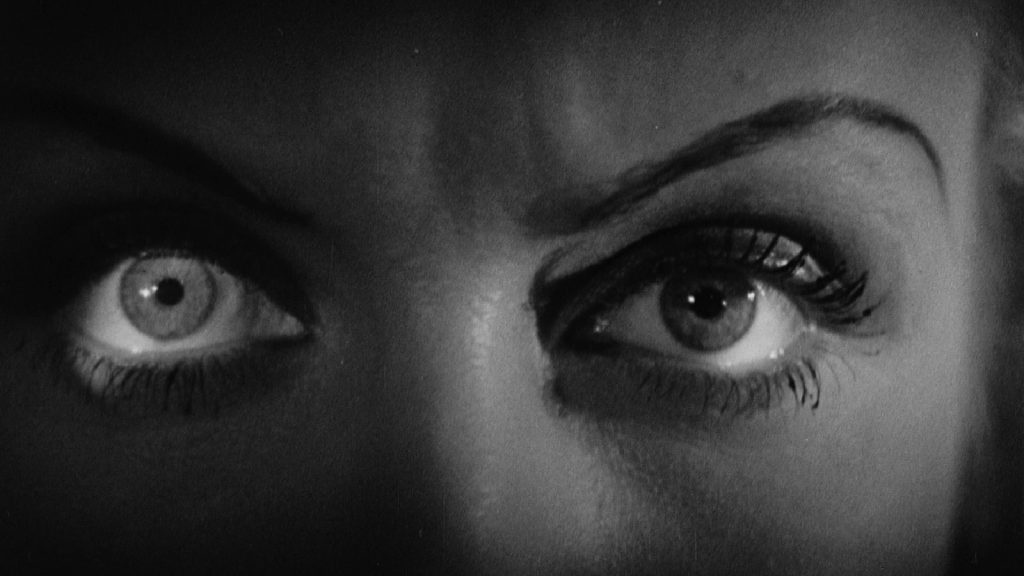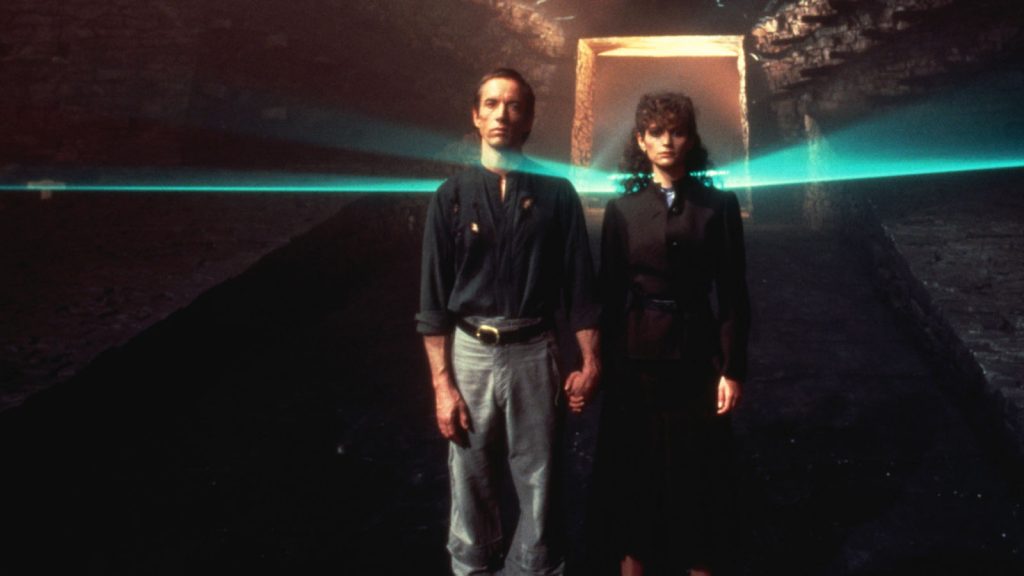
Of all the myriad films titled Thirst, Rod Hardy’s 1979 feature stands out as a multi-genre wonder, a horror/sci-fi hybrid with a dash of action and the fluidity of a soap opera. Zooming in on lead actress Chantal Contouri and shooting her in soft focus, editor Philip Reid and cinematographer Vincent Monton elicit heightened emotion with swift cuts and impressive swoops of the camera. The resulting film is a gauzy shocker filled with arch performances.
Thirst’s aesthetic campiness melds well with a plot that veers quickly from one fantastically absurd scene to the next. Tormented by an elite vampire cult that believes her to be the descendant of Countess Elizabeth Báthory, glamorous career-woman Kate Davis (Contouri) constantly battles for her tenuous sanity. Known as the Brotherhood, the cult operates a very sci-fi-esque “blood farm” out in the Australian countryside where they drain genetically approved, tranquilized young people in between poolside lounging sessions. At night they perform arcane rituals, chanting ominously as they encourage Kate to puncture the neck of a human “blood cow” with snap-on silver fangs. Save for the occasional visual effect of gleaming red eyes, Thirst is devoid of any evidence of magic, rendering the Brotherhood all the more sinister. Without any supernatural claims to vampirism, they’re nothing but an upper-class group of bloodsucking freaks.
Trapped on the blood farm with smiling nurses and a grimacing doctor (Henry Silva, whose presence is always a delight), Kate is repeatedly disgusted and terrified by the Brotherhood’s sickening rites. Only David Hemmings’s Dr. Fraser appears sympathetic, but before long, Kate becomes lost in a haze of drug-induced paranoia, flailing wide-eyed like a broken doll. Contouri is incredibly skilled at portraying distress, and the film gives her ample opportunity to do so. She is theatrically shocked, again and again, when seemingly everyday objects (milk cartons, chicken wings, shower heads, coffee cups) suddenly overflow with blood, providing numerous opportunities for the score (by the prominent Australian New Wave composer Brian May) to shrill and swell.
Locked in her room and dosed with psychedelics, Kate is subjected to a gauntlet of the Brotherhood’s mental-conditioning tests, with the hope that she will choose to join their cult. Luckily for us, Kate’s will to fight is strong, and we get to see her face off against the bloodsuckers in a fun third act that pulls out all the stops. Thirst is an overlooked gem of late-’70s Australian cinema.

is the host of “No Pussyfooting,” an online radio show on www.kpiss.fm. She is the editor of Paul Verhoeven: Interviews (UPM) and has contributed to Film Comment since 2006.
It was Ingmar Bergman’s The Seventh Seal (1957) that inspired Stephanie Rothman to make movies. She studied filmmaking at the University of Southern California, became the first woman...
BY JOSÉ TEODORO | February 12, 2024
Jennifer Reeder is a proudly Chicago-based, truly independent filmmaker with over 25 years of experience in the business.
BY LAURA WYNNE | May 30, 2025
Jean Rollin’s debut, The Rape of the Vampire, was the only film to premiere in Paris during the May 1968 riots, and Rollin’s destiny as a director was irrevocably sealed.
BY LAURA WYNNE | February 15, 2025

This pre-Code offering packs a lot of story into its typically brisk running time, with several plot threads weaving together a (not always successful) tapestry of spooky and criminal doings.
READ MORE >
BY ANN OLSSON | Month 00, 2021

In what could be the fastest-resulting rape revenge movie, a drunken lout brutally forces himself on Ida, the young woman who doesn't return his affections, during a party over Labor Day.
READ MORE >
BY LAURA KERN | Month 00, 2021

Beast is a lot of movies in one package - fractured fairy tale, belated-coming-of-age story, psychological drama, regional horror film - but above all it's a calling card for its leading lady, Jessie Buckley.
READ MORE >
BY LAURA KERN | Month 00, 2021